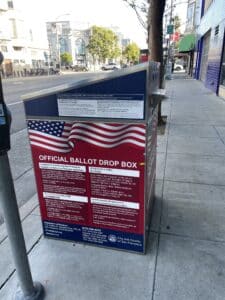California Bane Civil Rights Act Attorney
San Francisco Hate Crime Lawyer
The Bane Act: Civil Code Section 52.1
The Bane Act provides protection from threats, intimidation, or coercion and for attempts to interfere with someone’s state or federal statutory or constitutional rights.
The rights include the right to association, assembly, due process, education, employment, equal protection, expression, formation, and enforcement of contracts, holding of public office, housing, privacy, speech, travel, use of public facilities, voting, worship, and protection from bodily restraint or harm, from personal insult, from defamation, and from injury to personal relations. Proof of “hate motivation” is required.
The Bane Act provides for:
- Civil penalties for perpetrators
- Civil remedies to victims of “hate crime violence”
- Three times actual damages, but no less than $1,000
- Restraining orders and injunctive, or other equitable relief (violation of which is punishable by a criminal contempt action, with a penalty of six months in jail and/or a fine not exceeding $1,000)
- Attorney’s fees
Speech alone is not sufficient to support an action under the Bane Act, unless the speech threatens violence and the person or group of persons against whom the threat is directed reasonably fears that violence will be committed against them or their property and the person threatening violence has the ability to carry out the threat.
Who Can Sue for a Hate Crime Under the Banes Act?
The victim has standing to sue, as well as associates of the victim if they were also subjected to violence or threats of violence. Damages allowed include medical expenses, impaired earning capacity, lost property value, pain, suffering, emotional distress, and loss of services.
Temporary Restraining Orders, Preliminary and Permanent Injunctions
Once criminal charges are filed under the Bane Civil Rights Act, or under any other criminal statute, hate crimes victims have the right to a court order prohibiting any additional harassment, or any communication or contact at all. Orders are immediately enforceable by law enforcement agencies. Violation of order can be misdemeanor, or felony, if accompanied by force or threat of force.
San Francisco Hate Crime Victim’s Lawyer
If you believe that you, or a loved one, has been the victim of a hate crime in San Francisco or anywhere in California, contact the Dolan Law Firm a free, no obligation evaluation of your case.













